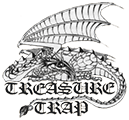Albion
Albion (Out of Date)
Albion is a large island to the north-west of the main continent. However, the term usually refers to the regions of that island other than Caledonia (in the north) and Cymru (in the west).
Greater Albion
Head of state: King Augustus
Capital: Londinium
Major religions: St John
Minor religions: Various
Languages: Albion
Major races: Humans
Minor races: Various
The Kingdom of Greater Albion dominates all of Albion South of the Wall, following a rapid expansion around 1300. Humans, Elves, and Dwarves are recognised under and afforded the protection of its laws; other species are not.
The practice of magic within the Kingdom is controlled by the Brotherhood of Magic, who also oversee ritual magic in the Kingdom. As only mages can be in the Brotherhood, only mages may legally practice ritual magic in Albion.
The legal faiths are: Astalon, St John, the Light, Humact, Ishmund, the Triplicity (or any of its aspects), Morvana, Mallan, Morpheus, the Crofter, Olympia, Gedhrent, The Seeker, Cyranis, and the Circle of the Balance. Other faiths may only be worshipped with the explicit permission of the Crown.
Before reunification the country contained the following nations, which now exist with various levels of independence:
Southern Rovac
Rovac has long been the space between nations. Nominally owned by Greater Albion, Southern Rovac is inhabited by bands of refugees, bandits, deserters, and peasants too poor to leave.
Northumbria
The country of Northumbria was formed after the collapse of the first Kingdom of Greater Albion. It was an expansionist nation ruled by the iron hand of General Stuarts and his officer corps who went rogue after the Durholme siege fiasco.
The Pentarchy
The Pentarchy was a loose alliance of six (there were five when it was named) small nations of city states that occupy the central north-west of Albion. This central position in Albion made the Pentarchy a major trade alliance, and most of Albion’s land trade passes through it at some point.
The nations of the Pentarchy were Chester, Southport, Lancaster, Stafford, Wolverhampton, and the Peaks.
The Pentarchy (especially Southport and Wolverhampton) was devastated by an invasion of green-magic-filled ‘Plant-Trolls’ and therefore put up no significant resistance to the unification of Greater Albion. The Peaks is largely a wasteland of cold iron dust and abandoned mine workings which is constantly rumoured to contain a ‘stable’ population of Raveshaks.
Mercia
Mercia is the heart of Greater Albion, from which its Royal Family come. However, its capital, Londinium, is technically in Wessex. The majority of the court are Mercian in origin.
Gutherham
Gutherham has a disproportionate amount of coastline for its size, and so is home to a certain amount of naval power. In the recent past, crusades to Magyar have departed from here, including the most recent expedition which was launched to bring back the body of King Edward of Wessex and of the previous Greater Albion.
Wessex
Wessex was the heart of the previous Greater Albion, but is now ruled by the court from Mercia, although the Greater Albion of which it is a part is not overly different.
Cornwall
The previous royal family was often absent, with power held by ministers in their absence. Since the country’s absorption into Greater Albion, it is likely that little has changed.
Durholme
The borders of Durholme are almost constantly in flux. A city-state in its own right, Durholme currently has at least nominal rulership over the Palatinate, Astra Rubis (though it has given it freedom to govern itself and treats it as an independent ally), and Northern Rovac.
The Palatinate
Long governed by the Prince Bishops, who have also historically ruled Durholme, the governance of both Durholme and the Palatinate has been increasingly separated from the Prince Bishops following several intervals in which no Prince Bishop existed, sometimes for several years. The current Prince Bishop is a Wight named Iorweth.
Northern Rovac
Rovac has long been the space between nations. Like Southern Rovac, Northern Rovac is inhabited by bands of refugees, bandits, deserters, and peasants too poor to leave.
Astra Rubis
The Urca nation of Astra Rubis was almost completely annihilated by Durholme in 1298, but Durholme’s stance has softened over the years and it was granted its independence in 1302, with the Urca population continuing to recover. It is still ceremonially part of Durholme’s domain.
Newcroft
Newcroft is a free city that also owns much of its surrounding land. It is ruled by a power-sharing council of mercantile Mallanites, who can usually be counted on to act according to generally Mallanite principles.
Yorvick
Yorvick is a bastion of the Olympian faith, and has strong ties to Norsca, having briefly been ruled by that nation until the Norscans were driven back. They resisted the forces of Mercia during the last unification, and since regained their independence.
